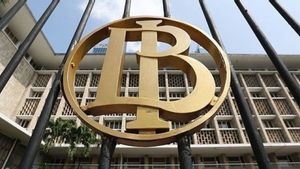The Director General of Population and Civil Registration (Dukcapil) of the Ministry of Home Affairs (Kemendagri) Teguh Setyabudi said that his party had received a request to deactivate the population identification number (NIK) of a number of Jakarta residents from the DKI Provincial Government.
The NIK requested to be deactivated is a resident of Jakarta who has died and a resident in RT who no longer exists. Teguh said he would follow up on the request.
"We at the Directorate General of Dukcapil have just received a letter requesting the NIK deactivator from the DKI Jakarta Provincial Dukcapil Service and then we will coordinate it for follow-up," Teguh told reporters, Wednesday, April 24.
Teguh said that the central government supports the steps taken by the DKI Provincial Government to abolish the NIK of residents, including those who no longer live in Jakarta.
Given, the arrangement and control of population documents is mandated in Article 18 Paragraph 2 of Law (UU) Number 23 of 2006 concerning Population Administration with amendments to Law Number 24 of 2013.
"The dynamics of population are vital to referrals for regional policies and development, so it is hoped that population data can be more accurate," said Teguh.
"Of course we will do it carefully, therefore we will still discuss it again with the DKI Jakarta Provincial Dukcapil Office and several other relevant stakeholders," he continued.
The DKI Provincial Government has started the deactivation of the NIK with a target of 92 thousand Jakarta residents, with details of 81,119 NIK residents who died and 11,374 NIK residents in the Neighborhood Association (RT) who no longer exist.
Then, the deactivation of the NIK of Jakarta residents who already live outside the area will be carried out after the initial two categories have been deactivated.
SEE ALSO:
In the process, the DKI Provincial Government mapped out residents affected by the deactivation of the NIK. Then, the data was submitted to the Ministry of Home Affairs (Kemendagri) to remove the NIK.
Then, in verifying and validating the objections of residents affected by the deactivation of the NIK, the DKI Provincial Government will submit a recommendation to the Ministry of Home Affairs as a follow-up to the elimination of the NIK.
The English, Chinese, Japanese, Arabic, and French versions are automatically generated by the AI. So there may still be inaccuracies in translating, please always see Indonesian as our main language. (system supported by DigitalSiber.id)










